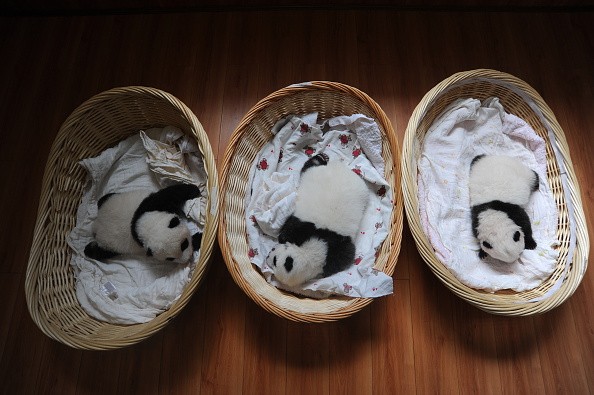A research study published on Tuesday suggested that letting pandas living in zoos choose their own mates can help improve their sex drive.
"Giant pandas paired with preferred partners have significantly higher copulation and birthrates," researchers said in the journal Nature Communications.
Pandas living in captivity were generally paired with a mate selected by scientists according to their genetic profiles in order to minimize inbreeding and expand the gene pool.
However, results are often less than desirable as the animals often have to be coaxed by handlers to show even the slightest sexual interest in whatever mate is paired with them, according to a report by China Daily. And in many cases, scientists have turned to artificial insemination in order to ensure that China's iconic and endangered creatures have cubs.
A team from the U.S. and China conducted a test at the China Conservation and Research Center for the Giant Panda (CCRCGP) in Sichuan Province to determine if whether allowing pandas to choose their own mates can make a difference.
In the study, male and female pandas were housed in enclosures with animals of the opposite sex on either side. The animals were permitted limited physical interactions with one another through the cage bars.
Scientists measured the pandas' "mate preference behavior," which included various forms of playfulness and bond-forming acts as well as sexual arousal. They also noted negative interactions such as signs of aggression or a mere lack of interest.
The animals were then introduced for mating to both preferred and non-preferred partners.
"The highest reproductive performance was seen when both males and females showed mutual preference," the researchers wrote in the study.
"Mate incompatibility can impede captive breeding programs by reducing reproductive rates. It is therefore surprising that mate preferences have not figured more prominently in captive breeding programs," they added.
The scientists expressed hope that the study may help steer the future of conservation breeding away from artificial means.
According to the World Wildlife Fund (WWF), there are nearly 1,600 pandas left in the wild in China.


